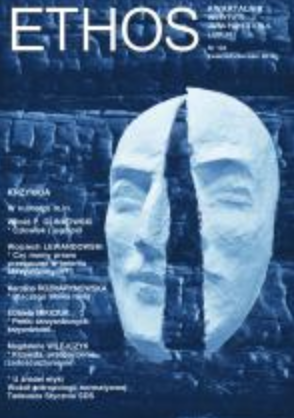CZY DOŚWIADCZENIE PRAWDY WYSTARCZY DO ZBUDOWANIA ETYKI JAKO TEORII POWINNOŚCI MORALNEJ?
Is the Experience of Truth Suffi cient for Building Ethics as a Theory of Moral Duty?
Author(s): Alfred Marek WierzbickiSubject(s): Christian Theology and Religion, Ethics / Practical Philosophy
Published by: Katolicki Uniwersytet Lubelski Jana Pawła II - Instytut Jana Pawła II, Wydział Filozofii
Keywords: person; dignity; normativity; truth; good
Summary/Abstract: This article is a comment on Tadeusz Styczeń’s study “Etyka jako antropologia normatywna” [“Ethics as Normative Anthropology”] and it is a contribution to the debate held among his disciples who want to develop his conception of the normative power of truth. The ‘veritative’ interpretation of personalism, outlined in Styczeń’s later writings, is a particularization and a specification of its ‘dignitative’ interpretation worked out by Karol Wojtyła and developed by Styczeń himself in his early ethical writings. The dignity of the human person is the source of moral obligation. This principle follows from the fact that the principal manifestation of the dignity of the person is his (her) ability to know truth. Styczeń claims that self-information is self-imperative and that the subject becomes ‘a trustee of truth,’ and at the same time ‘a trustee of a trustee of truth,’ or, of any person capable of recognizing truth on the grounds of his (her) rationality. The author of the present paper poses the question of whether the experience of the normative power of truth is as universal as the experience of the dignity of the person. He also points out that in order to achieve a complete ethical theory one should consider the axiological structure of the reality and therefore normativity is a property of the truth about good.
Journal: Ethos. Kwartalnik Instytutu Jana Pawła II KUL
- Issue Year: 31/2018
- Issue No: 2
- Page Range: 364-374
- Page Count: 11
- Language: Polish
- Content File-PDF

